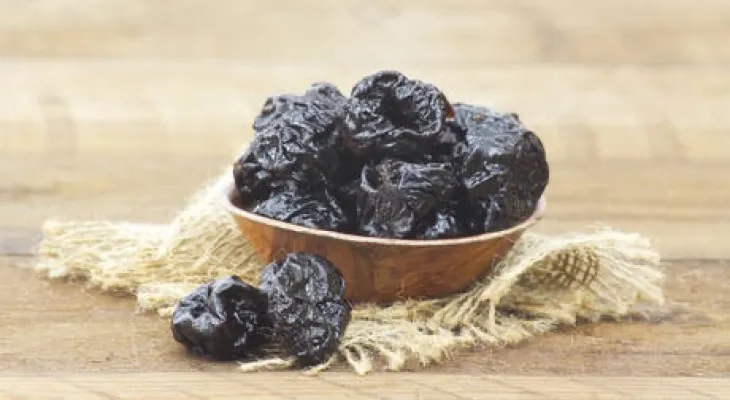Search here
Newspaper
Search here

Arab Canada News
News

Published: December 9, 2022
Osteoporosis causes bone weakness and fragility, and it is a condition that affects both genders equally, although women are more than four times as likely to develop it than men.
This is partly due to reduced estrogen levels at the onset of menopause, which leads to a loss of bone density.
A new study, led by Pennsylvania State, showed that consuming prunes daily may help women maintain bone density.
In a recent article published in the American Journal of Clinical Nutrition, researchers evaluated the bone density of 235 postmenopausal women, some of whom were assigned to consume 50g - about five or six prunes - or 100g of prunes daily for one year.
The researchers measured the bone mineral density, bone geometry, and estimated bone strength of the women and found evidence that prunes may be beneficial.
The results indicated that five or six prunes daily were more beneficial because participants were more likely to continue the diet.
Consuming about five or six prunes was helpful, but participants who consumed between 10 to 12 prunes were more likely to drop out of the study.
Lead author Mary Jane De Souza, a senior professor of kinesiology and physiology, said: "Consuming five to six prunes daily for 12 months maintained hip bone health, a finding observable at six months and persisting through 12 months. In another study, three-dimensional bone imaging provided additional information about bone response to daily prune consumption."
The results suggest that prune consumption maintains bone mass density and strength at weight-bearing sites in the hip.
Women who did not eat prunes experienced a 1.1% decrease in bone density, while women who consumed five or six prunes daily did not suffer a marked loss of bone density.
Other preliminary results indicate similar outcomes for the tibia bone, a bone in the shin.
De Souza continued: "We observed that women who consumed prunes for a year gained some bone benefits. Specifically, estimated bone strength in the leg was maintained in the combined group, and bone density was maintained when consuming five to six prunes daily, as well as the group consuming 10 to 12 prunes daily. As such, prunes seem to help prevent bone loss, especially in the hip and leg."
The results suggest that daily prune consumption is likely beneficial for long-term bone health. If proven true, this could lead to improved quality of life for millions of elderly people.
Comments